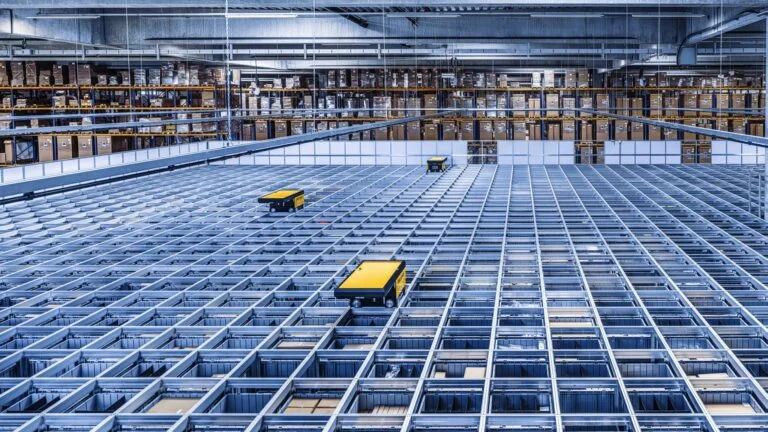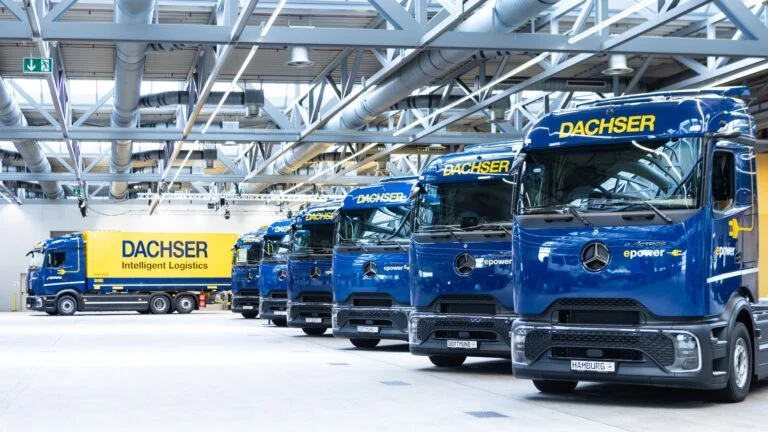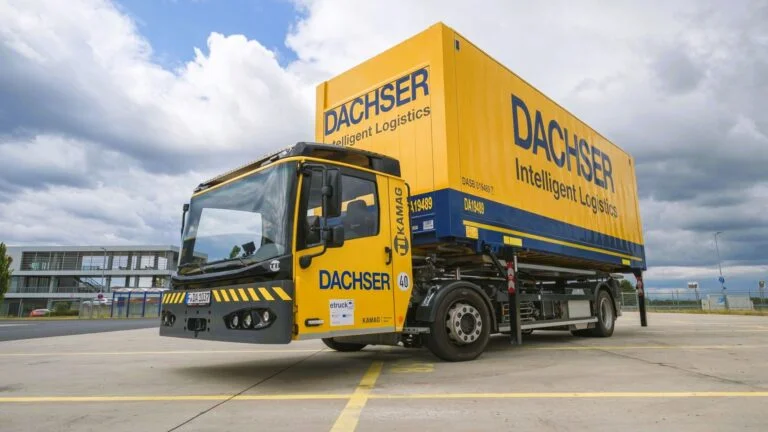Digital mindset: Transformation begins in the mind
By Marcus Schick I 7 minute read
13/11/2025
Digitalization is about much more than simply using new technologies. It is a comprehensive transformation that fundamentally changes the way companies think, work, and lead. We share some insights and outlooks from an extraordinary learning journey to the digital mindset.
Quick Read
Digitalization changes everything: the way we think, work, and collaborate in companies, and the way individuals and groups interact. It’s not a question of isolated improvements: “Digitalization provides us with an opportunity to completely rethink how we operate our processes, organize our work environment, and work with our customers and partners along the supply chain,” says Stefan Hohm, Chief Development Officer (CDO) at Dachser. Dachser’s mission is to become the most integrated logistics provider, and the only way for that goal to remain within reach is if the company manages to become more digital across the board. “However, anyone who imagines digitalization purely in technical terms isn’t going nearly far enough,” Hohm continues. “Ultimately, it’s always people who will determine the success or failure of digital transformation.” That’s why the company is pursuing a comprehensive strategic approach that involves not only putting in place the technological prerequisites, but also actively promoting patterns of thought and behavior as well as encouraging and empowering employees to make the right decisions.
This means that a central element of Dachser’s digitalization strategy is the “digital mindset”—a way of thinking that is characterized by openness, a willingness to learn, and the courage to change. Such a mindset ensures that at Dachser, digital technologies won’t just be introduced, but will also be used effectively by and with people in day-to-day logistics.
Digitalization provides us with an opportunity to completely rethink how we operate our processes, organize our work environment, and work with our customers and partners along the supply chain,
Education paves the way: The virtual learning journey
For Dachser, the way forward is clear: Change begins with education. Consequently, the company has launched a virtual learning journey to the digital mindset, with the aim of helping employees achieve individual growth. It makes use of formats such as digital fitness check, microtraining, and reverse mentoring to establish and strengthen digital skills so as to minimize the accessibility threshold of new technologies.
An initial digital fitness check, which was carried out in 2023 with over 8,000 employees worldwide taking part, provided valuable insights into digital habits, expectations, and needs across the company. One of the key findings was that people expect their managers to actively drive digital developments and act as role models. At the same time, many employees want targeted learning and training opportunities that will help them make better use of digitalization in their day-to-day work.
“Learning is about more than just consuming content; it’s about actively engaging with new ways of working,” says Dr. Fabian Günther, Corporate Director Strategy, M&A at Dachser. And that’s precisely what the virtual learning journey—which his corporate unit has designed together with the DACHSER Academy, in-house and third-party experts, and the Cologne branch—makes possible. Built around the key idea of the digital mindset, the journey focuses on five dimensions: digital skills, continuous improvement, adaptable organizational structures, collaborative cooperation, and customer and user centricity.
The role that digitalization plays in everyday logistics today and in the future is the subject of numerous reports in DACHSER magazine.
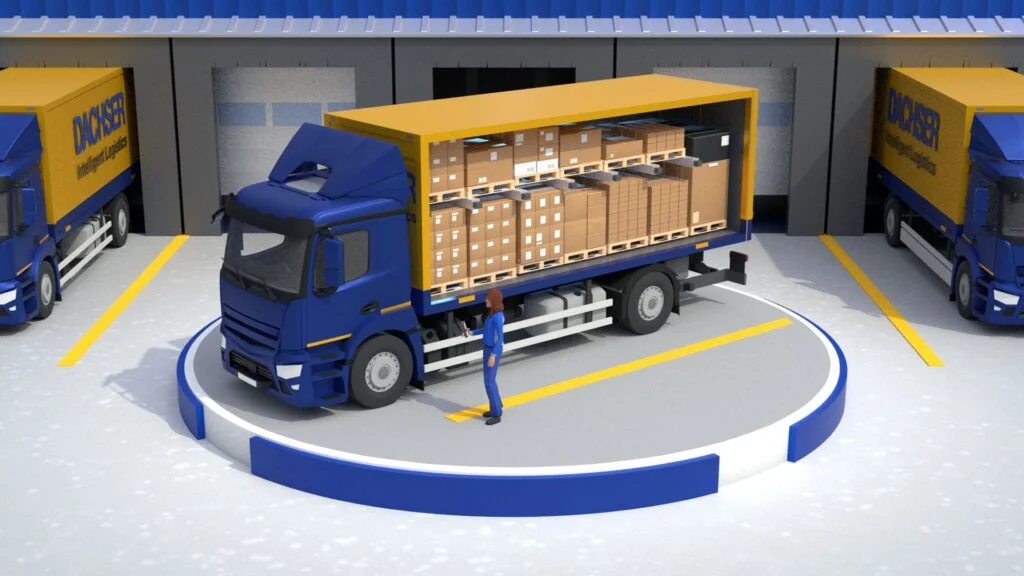
Reverse mentoring: A learning dialogue
The journey also makes a point of bringing together experience and curiosity in a targeted manner, for instance through reverse mentoring. In this format, younger employees can pass on their digital knowledge to their colleagues—and in return can themselves benefit from their colleagues’ professional and life experience.
“Reverse mentoring creates a learning environment that’s based not on hierarchies but on mutual respect and trust,” says Sulamith Roth, Professional Expert Strategy & Transformation at Dachser. The format is proving to be a valuable complement to existing training courses, as it is flexible, practical, and tailored to individual needs.
Apps by everyone, for everyone: Citizen development at Dachser
One particularly vivid example of the digital mindset is “citizen development.” In the spirit of moving “away from the clipboard,” Dachser wants to reduce the amount of paper it uses. Employees have access to a no-code platform on which they can develop their own apps to digitalize and simplify day-to-day processes based on their practical experience. This makes it possible to standardize processes across locations and digitally map individual procedures. “The aim is to make processes more efficient and noticeably improve data quality,” Hohm explains.
Within a short space of time, Dachser employees have already used their so-called “smaps” to independently improve a large number of routine logistics processes, such as the creation of truck checklists and incoming goods logs. This has turned media discontinuities, long transmission times, and errors due to manual data entry into a thing of the past. In a tangible win for sustainability, around ten million sheets of paper had already been saved by December 2024. Not only does that mean fewer bulging paper files, it has also considerably reduced water and energy consumption and bills. What’s more, these process optimizations have significantly reduced process costs.
Hohm sees intuitive app development on the no-code platform not just as a great opportunity, but also as an obligation: “Digital technologies can’t reach their full potential unless they’re linked to specific use cases. Citizen development demonstrates how digitalization can emerge from day-to-day business practice.” The citizen developer community at Dachser now numbers over 1,250 employees across Europe—an encouraging sign that a decentralized and collaborative approach to digitalization can also succeed.
1.250
employees are part of the European Citizen Developer Community at DACHSER
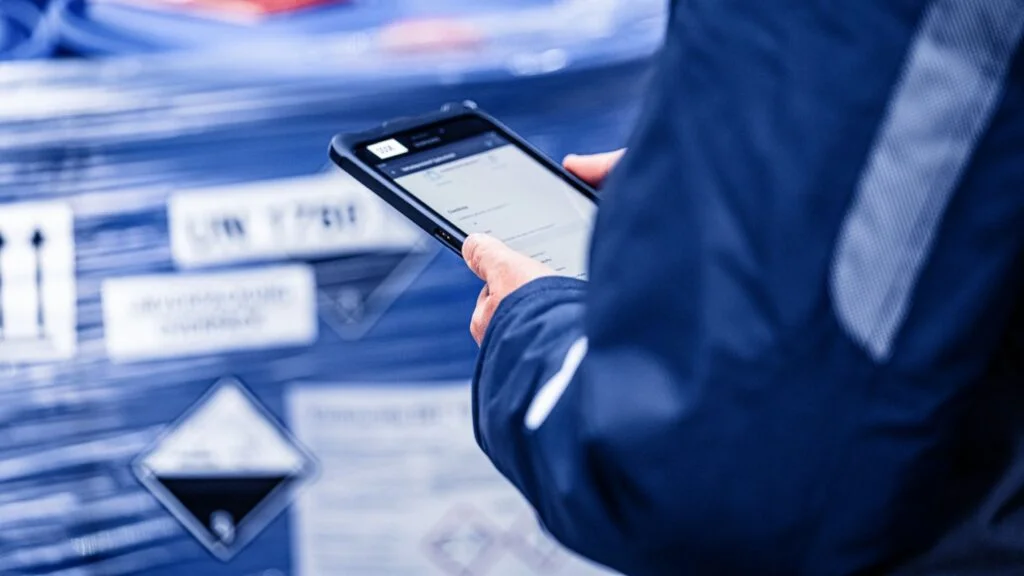
Leadership in transition: Managers as role models
As the digital fitness check showed, digitalization not only requires technology and expertise, but it also calls for new forms of leadership. This insight was incorporated into the development of Dachser’s leadership principles, which give expression to the company’s understanding of modern leadership. They aim to provide orientation, create trust, and enable teams to organize themselves.
“Our leadership principles are closely linked to the agile mindset,” Roth says. “They help us act boldly and decisively in a dynamic environment while adhering to clear values and guidelines.”
The direction of the digital journey is defined by focusing on three closely interlinked core areas: first, the consistent but always sensible digitalization of business processes; second, the continuous evolution of Dachser’s own core systems for transport and warehousing; and third, getting employees on board and establishing a positive digitalization culture.
Our employees are open and curious about digitalization, but they need guidance, time to learn, and managers who act as role models through empowerment.
“At Dachser, digital transformation is a process that encompasses technology and culture in equal measure,” Dr. Günther says. It calls for new skills, the upholding of values, and an open learning culture. “Our employees are open and curious about digitalization, but they need guidance, time to learn, and managers who act as role models through empowerment.”
For Hohm, the digital mindset journey at Dachser leads to a clear, unambiguous goal: “At Dachser, we want digitalization to support employees and relieve their burden, not replace them. Quite the opposite. People will be as central to our warehouse operations in the future as they are today. We will always need employees who are able to think for themselves and make the many exceptions to the rules that day-to-day logistics requires. And digitalization should be a powerful ally at their side.”

